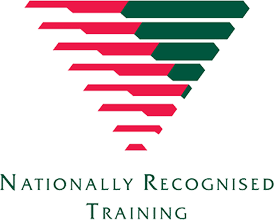Australian 4WD, Neilson Road, Kurwongbah QLD
$570 Per Person
1 day
COURSES Quick Facts
COURSE NAME
Operate and maintain a four wheel drive vehicle (4WD)
COURSE CODE
RIIVEH305F - Operate and maintain a four wheel drive
DURATION
1 day face to face
ON SITE & GROUP BOOKINGS
Available on Request
COST
$570 Per Person
MORE COURSES, MORE OFTEN
No Matter How Many Students Book
Operate and Maintain a 4WD Course Overview
This course will teach you the skills and knowledge required to operate and maintain a four wheel drive vehicle in the resources and infrastructure industries.
It applies to those working in supervisory and technical specialist roles. They generally work under minimal supervision to undertake a broad range of skilled applications in varied work contexts, using some discretion and judgement in selecting equipment, services or contingency measures.
Licensing, legislative and certification requirements may apply to this unit and can vary between states, territories and industry sectors. Users must check requirements with relevant body before applying the unit.
Please note: the price of our 4WD training course includes 4WD vehicle hire. You don’t need to worry about arranging a vehicle separately as it’s all covered in the course fee. If you prefer to provide your own however, this price will be reduced by $175 pp.
Elements and Performance Criteria
| ELEMENT | PERFORMANCE CRITERIA |
| Elements describe the essential outcomes. | Performance criteria describe the performance needed to demonstrate achievement of the element. |
| 1. Identify four-wheel drive specific terms, terminology and techniques | 1.1 Obtain, interpret and confirm work requirements 1.2 Access, interpret and apply documentation required to operate and maintain a four wheel drive 1.3 Identify the structural and handling differences between a conventional two wheel drive and a four-wheel drive vehicle 1.4 Identify and demonstrate the purpose and use of front wheel hubs 1.5 Identify factors affecting tyre size, fitment, rating, and pressure 1.6 Identify recovery hooks and mounting features 1.7 Identify hazards associated with incorrect use of vehicle features or equipment |
| 2. Plan for minimal environmental impact | 2.1 Determine types of impact likely to occur during four-wheel driving activities 2.2 Demonstrate compliance with land management principles and policies when planning exploration activities 2.3 Comply with policies and management plans relevant to the work activity area 2.4 Plan and conduct activities in a manner which minimises environmental impact 2.5 Adopt and implement procedures to ensure minimisation of harm to the environment from four-wheel drive activities 2.6 Demonstrate cooperation and consideration towards other land users |
| 3. Perform pre-departure checks | 3.1 Perform routine pre-departure checks under the bonnet, under the body, on external and internal items and accessories according to manufacturer specifications 3.2 Take action to correct any deficiency 3.3 Determine food and water requirements for journey 3.4 Select navigation equipment 3.5 Interpret weather conditions, determine suitability for driving 3.6 Apply safe vehicle loading practices according to workplace procedures 3.7 Secure items of personal luggage 3.8 Advise passengers of any special safety precautions to be taken when traversing rough terrain |
| 4. Use four-wheel drive mode | 4.1 Operate four-wheel drive both on and off road, in accordance with road rules, principles of four-wheel driving and WHS regulations according to manufacturer specifications 4.2 Apply smooth accelerator control strategies over a range of terrain types according to manufacturer specifications 4.3 Demonstrate recommended braking techniques for hard top surfaces and off road conditions according to manufacturer specifications 4.4 Identify situations where the engagement of four-wheel drive is required 4.5 Engage four-wheel drive mode 4.6 Survey track to identify hazards, asses risk and select the best route 4.7 Select routes to minimise damage to the environment 4.8 Use appropriate range, gear, speed, driving and braking technique, negotiate a range of terrain types whilst maintaining control of vehicle, being aware of contextual/environment issues 4.9 Maintain appropriate hand positioning on steering wheel 4.10 Check brakes and undercarriage after negotiating varying terrain 4.11 Assess and perform repairs to damaged tracks according to workplace procedures |
| 5. Coordinate and recover a vehicle | 5.1 Apply work procedures to ensure risk assessment, safe operating practices, and communication requirements are adhered to 5.2 Identify equipment and methods to recover a stuck vehicle 5.3 Identify risks associated with vehicle recovery and develop and implement strategies to minimise risks 5.4 Identify correctly rated recovery equipment and attachment points according to manufacturer specifications 5.5 Demonstrate procedures for preparing vehicles for recovery 5.6 Identify techniques to minimise impact on the environment during vehicle recovery 5.7 Coordinate safe recovery of a four-wheel drive vehicle using designated equipment and recovery method 5.8 Perform post recovery checks and report any vehicle or environmental repairs needed 5.9 Return recovery equipment to a reusable condition |
| 6. Perform maintenance and minor repairs on four-wheel drive vehicles | 6.1 Select/access maintenance equipment, including spares and fluids, prior to departure, considering contextual issues of the trip 6.2 Check vehicles prior to and regularly during trip, and perform routine maintenance/repair tasks according to workplace procedures 6.3 Submit vehicle written performance reports according to workplace procedures 6.4 Demonstrate safe use of a jack to change a wheel on a four-wheel drive vehicle according to manufacturer specifications |
Course Delivery
Face to face training and assessment is conducted at one of Link Resources purpose built training facilities. Upon arrangement, training and assessment can be conducted on-site at the premises of industry clients providing there a suitable infrastructure and industry training facilities.
Link Resources Training Facilities:
Sunshine Coast: 8 Technology Drive, Warana, QLD 4575
Brisbane: 18/229 Junction Road, Cannon Hill QLD 4170
Kurwongbah: Neilson Road, Kurwongbah QLD 4503
Adelaide: Unit 4/77-79 Tapleys Hill Rd, Hendon SA 5014
Devonport: 226 Mill Road, Wesley Vale TAS 7307
Hobart: Glenorchy Football Club, 1A Anfield St, Glenorchy TAS 7010
Outcomes of Operate and Maintain 4WD Training
Students who are deemed competent will receive a Statement of Attainment recognised under the Australian Qualifications Framework. This certification is nationally recognised. The Statement is issued by Link Resources Training Pty Ltd (RTO 45483).
Payment Options
Please see the Link Resources Payments, Cancellations and Refund Policy below in Student Information for all details on Payments for your course.
Payment can be made via direct bank transfer, eftpos, cash or cheque. For billing information including who to write a cheque to, please email training@link-resources.com.au or call (07) 5491 2144
Entry Requirements
All students must be literate in the English language (no interpreters allowed).
Operators must have the appropriate class of driver’s licence before taking charge of the vehicle and be physically capable of operating the vehicle.
At enquiry, students can enter the program by expressing an interest and being sent an information pack that contains a booking notification and course information (Course Brochure). This interest process enables the RTO and client to work together to ensure the course is suitable for them and to identify any additional support needs & make adequate provisions.
No pre-requisites exist for these Units of Competency.
Pathways
Training & Education Pathways: After achieving these units of competency students may undertake a range of associated resources and infrastructure units and qualifications.
Employment Pathways: After achieving these units of competency students may seek employment or additional responsibilities as a vehicle operator in various industries.


